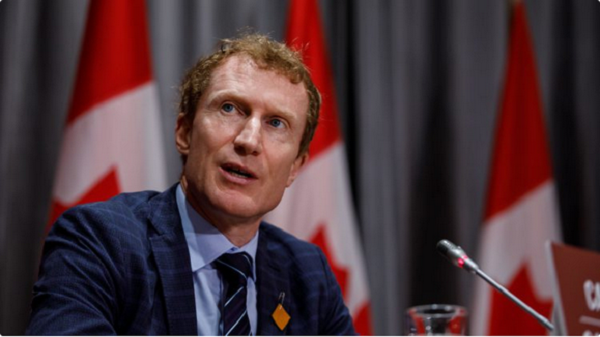Trump’s border czar says Canada’s immigration laws are ‘too lax’
Amid a potential tariff threat that is one month away, U.S. president-elect Donald Trump’s border czar Tom Homan is calling talks with Canada over border security “positive” but says he is still waiting to hear details.
“The conversation I have in Canada, I couldn’t ask for a better conversation,” Homan said in an exclusive interview with CTV’s Power Play host Vassy Kapelos on Thursday. “Of course, actions have to follow, but I’m very optimistic from the conversation I had that we’re going to come up with a good border security plan.”
Last month, Trump threatened to impose a 25 per cent tariff on all Canadian imports on his first day in office, until Canada addresses the flow of illegal drugs and migrants over the shared border. Trump made the same threat to Mexico.
While the federal government says plans were already underway to boost border security prior to Trump’s warning, Finance Minister Dominic LeBlanc presented a $1.3-billion border security package(opens in a new tab) on Tuesday. The plan includes a new aerial task force for surveillance between ports of entry and additional human resources, with the goal of recruiting about 100-150 people between the RCMP and Canada Border Services Agency soon.
Speaking to Kapelos, Homan said he will be meeting with Canadian officials “in the next few days to talk about specifics.”
On Thursday, LeBlanc also acknowledged he will be meeting with Homan after Christmas but said he had a “very positive preliminary call” with him earlier this week.
Asked directly by Kapelos whether Canada can avoid tariffs if its border plan satisfies Trump’s concerns, Homan said, “I can’t speak for the president, but I can tell you that his number one concern is border security.”
“If Canada can come and be a good partner with us, I think it’s going to go a long ways with President Trump,” Homan added.
Homan also said he will be updating Trump “a lot” on his meetings with Canada, saying “he’ll be well informed.”
Border czar says ‘Canada’s immigration laws are too lax’
In his conversations with Canadian officials, Homan said he also expressed his concern about cross-border crime in Canada.
“I think Canada’s immigration laws are too lax. It’s pretty easy to get into Canada,” Homan said to Kapelos. “Not a lot of screening is done, not compared to the United States.”
“We’re certainly concerned about the number of aliens coming across the northern border, coming into (the) United States from special interest countries like India, Pakistan, Turkiye and such,” Homan said. “Border numbers on our northern border (are) up 600 per cent from the previous administration.”
Homan made similar comments in an interview with 7News last month, in which he called the border with Canada a “huge national security issue.”
According to U.S. Customs and Border Protection (CBP), nearly 24,000 encounters with migrants were recorded between posts on the Canada-U.S. border between October 2023 and September 2024, which is a significant surge compared to 916 encounters during that same period in 2021.
But CBP has told CTV News that expanded enforcement efforts to respond to “changing migration trends” has reduced encounters at the northern border between official ports of entry by more than 64 per cent between June and October of this year.
Despite the uptick of migrants crossing into the U.S. from Canada in recent years, the number is well below the 1.5 million that entered the U.S. from Mexico between October 2023 and September 2024.
The CBP says it has also seized 43 lbs of fentanyl at the Canada-U.S. border in the past year compared to 21,148 lbs at its southern border with Mexico.
Asked about the difference in numbers between Canada and Mexico, Homan acknowledged that “the southern border has been the biggest issue because of sheer volume” but reiterated his security concerns about Canada’s border with the U.S.
“After 9/11, there were studies done by the federal government saying it’s 10 times more likely for a terrorist to cross the northern border than the southern border, just because very few border assets (are) up there, very few agents,” Homan said.
But Homan says Canada has been “leaning forward” to address Trump’s concerns compared to Mexico, calling Canadian officials a “willing partner.”
“(Canada is) leaning forward on this, which is grateful,” Homan said. “Mexico, they’re saying a few things that I like but they’re not coming with what we think we need yet, so there’s some more work to be done.”
With files from CTV News’ Samantha Pope, Rachel Aiello and Spencer Van Dyk
This article was first reported by CTV News













